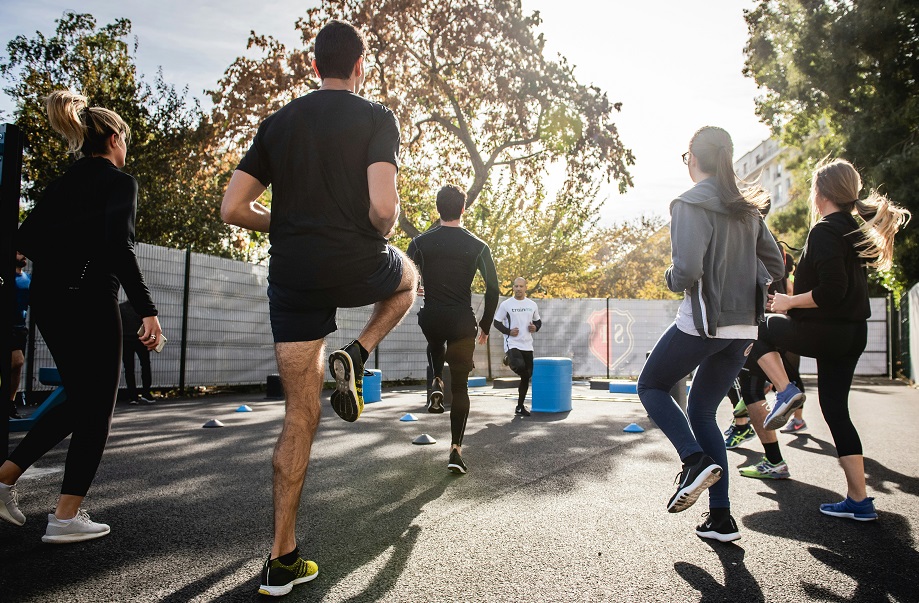Maintaining healthy joints is crucial for overall mobility, flexibility, and quality of life. Whether you’re young or old, taking proactive steps to support joint health can prevent discomfort, reduce the risk of joint-related conditions like arthritis, and promote an active lifestyle. Here, Mohit Tandon from USA suggested 15 Tips to Keep you joints Healthy and Strong.
1. Maintain a Healthy Weight
Excess weight puts added stress on your joints, particularly weight-bearing joints like the knees, hips, and spine. Firstly, Maintaining a healthy weight through a balanced diet and regular exercise can reduce the risk of joint pain and inflammation. Focus on consuming a variety of nutrient-dense foods and incorporating physical activity into your daily routine. – Mohit Tandon USA
2. Stay Active with Regular Exercise
Regular exercise is essential for joint health as it helps strengthen the muscles around your joints, improves flexibility, and supports overall joint function. Include a combination of cardiovascular exercises (e.g., walking, swimming) and strength training (e.g., weightlifting, resistance bands) in your fitness regimen to maintain joint mobility and stability.

3. Protect Your Joints during Physical Activity
When engaging in physical activities or sports, take precautions to protect your joints from injury. Use appropriate footwear, warm up before exercise, and practice proper techniques to reduce strain on your joints. Avoid overexertion and listen to your body’s signals to prevent unnecessary stress on your joints.
4. Practice Good Posture
Maintaining good posture is crucial for joint health, especially for the spine, hips, and knees. Be mindful of your posture throughout the day, whether sitting, standing, or lifting objects. Use ergonomic furniture and support devices if needed to maintain proper alignment and reduce strain on your joints. – Mohit Tandon USA
5. Prioritize Joint-Friendly Activities
Choose activities and exercises that are gentle on your joints, especially if you have existing joint issues or are recovering from injury. Low-impact exercises such as yoga, tai chi, and cycling can help improve joint flexibility and strength without placing excessive stress on them.
6. Incorporate Stretching and Flexibility Exercises
Regular stretching and flexibility exercises help maintain joint range of motion and reduce stiffness. Include dynamic stretches before exercise and static stretches afterward to improve flexibility and prevent muscle tightness. Focus on areas prone to joint stiffness, such as the hips, shoulders, and lower back.
7. Eat a Balanced and Nutrient-Rich Diet
A well-balanced diet rich in vitamins, minerals, and antioxidants supports overall joint health. Include foods high in omega-3 fatty acids (e.g., fatty fish, flaxseeds), which have anti-inflammatory properties. Incorporate plenty of fruits, vegetables, whole grains, and lean proteins to provide essential nutrients for joint maintenance and repair.
8. Stay Hydrated
Basically, Proper hydration is essential for joint health as it helps maintain the elasticity of cartilage and lubricates joints. Drink an adequate amount of water throughout the day to support joint function and reduce friction between joint surfaces. Limit consumption of sugary and caffeinated beverages, which can contribute to dehydration.
9. Protect Your Joints from Injury
Take proactive measures to protect your joints from injury in everyday activities. Use proper lifting techniques, avoid repetitive movements that strain your joints, and wear supportive gear when engaging in physical tasks. If participating in sports, wear appropriate protective equipment to minimize the risk of joint trauma.
10. Manage Stress and Mental Well-being
Chronic stress can contribute to muscle tension and joint stiffness, exacerbating joint discomfort. Practice stress management techniques such as mindfulness, meditation, and deep breathing exercises to promote relaxation and reduce tension in your body. Prioritize mental well-being to support overall joint health. – Mohit Tandon USA
11. Maintain Good Bone Health
Surely, Strong bones are essential for joint stability and function. Ensure an adequate intake of calcium and vitamin D through diet or supplements to support bone density and reduce the risk of osteoporosis-related fractures. Engage in weight-bearing exercises that promote bone strength and resilience.
12. Get Sufficient Sleep
Quality sleep is crucial for joint repair and recovery. Aim for 7-9 hours of sleep per night to allow your body time to heal from daily wear and tear on your joints. Establish a bedtime routine and create a sleep-friendly environment to promote restorative sleep and optimize joint health.
13. Listen to Your Body and Rest When Needed
Especially, Pay attention to signals of joint discomfort or pain and avoid pushing through activities that exacerbate symptoms. Allow time for adequate rest and recovery between workouts or strenuous activities to prevent overuse injuries. Use ice or heat therapy as needed to alleviate joint soreness and inflammation.
14. Consider Joint Supplements and Therapies
Consult with a healthcare professional about incorporating joint supplements such as glucosamine, chondroitin, and omega-3 fatty acids into your daily regimen. These supplements may help support joint structure, reduce inflammation, and alleviate mild joint pain. Explore complementary therapies like acupuncture or physical therapy for additional joint support. – Mohit Tandon USA
15. Stay Informed and Seek Medical Advice
Stay informed about joint health, common conditions like arthritis, and preventive measures you can take to protect your joints. If you experience persistent joint pain, swelling, or decreased mobility, seek medical advice from a healthcare provider or orthopedic specialist. Early intervention can help manage symptoms and prevent further joint damage.
Conclusion
Maintaining healthy and strong joints is essential for maintaining mobility, preventing injuries, and enjoying an active lifestyle throughout life. By incorporating these 15 tips into your daily routine, you can support joint health, reduce the risk of joint-related conditions, and optimize your overall well-being. Remember that proactive care and lifestyle choices play a crucial role in preserving joint function and ensuring long-term joint health.
Implement these strategies gradually and customize them to fit your individual needs and preferences. With dedication to joint health maintenance, you can continue to move with ease, flexibility, and comfort for years to come.
